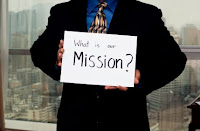Non-profit consultant and expert grant writer Derek Link addresses two of the most common objections to grant writing:
I’ve heard time and again from organization leaders and Board members either that; 1) “We don’t write grants because they are too much work;” or 2) the ever present stand-by, “The problem with writing grants is that the funds go away.”
If you’re saying these things, I suggest to you that #1 is half true; implementing grants is work, but whether a grant is too much work depends on what you are applying for. Argument #2 is simply shortsighted.
Let me dispel these arguments one at a time. The “grants are too much work” argument mostly relates to whether or not the grant appropriately fits the mission of the organization. I’d agree with this argument if an agency was only going after a grant to expand their budget and the activities fell far outside their mission. On the other hand, if an agency with existing funds could serve 100 senior citizens with hot meals; but given grant funding could expand and take everyone on their waiting list up to 150, would this be considered too much work, or just part of what the agency’s mission is all about?
The premise of the second argument, “grants go away,” is almost always true, but it is an invalid reason not to apply for the money. Why wouldn’t an agency like the one in my prior example take a three year grant to feed 50 seniors, even knowing that the money was going to end? Would the temporary nature of the grant be a good argument not to provide the hot meals for the 50 people? Or is not applying simply easier than making cuts at the end of the funding? A lot of good could be done in those three years; and during that time, a case could be built for finding the money elsewhere by demonstrating the need for the services and the efficacy of the agency delivering them.
The best reason for not grant writing is because it is outside the mission of your organization. Don’t be scared away by the expansion in services a grant will provide and don’t be deterred because at the end of the grant funding you may well have to cut your grant budget and maybe even reduce your staff. Grants do a lot of good for a lot of people, even it’s only a temporary infusion of grant funding. Yes, sometimes there are grant regulations to follow and special grant records to keep, but in the end, if grant writing supports your mission, your arguments against applying for grants should be carefully evaluated.
————————————-
If your organization is ready to write some grants, consider participating in an online seminar or taking an online grant writing course through the Online Learning Center.
Check out the other grant writing resources at grantgoddess.com!






